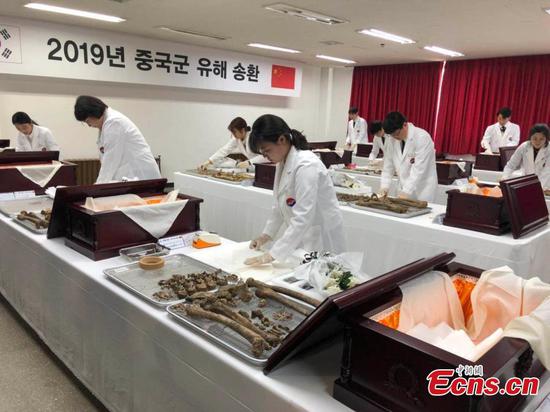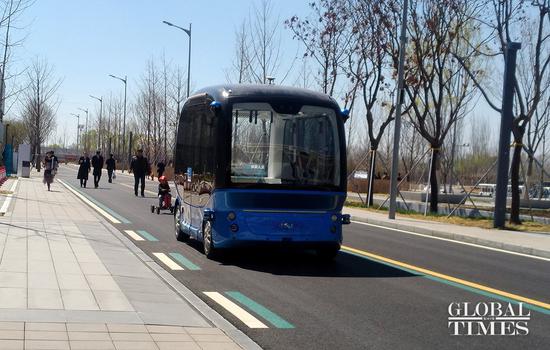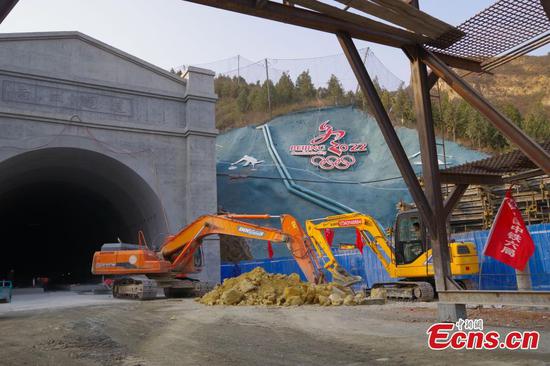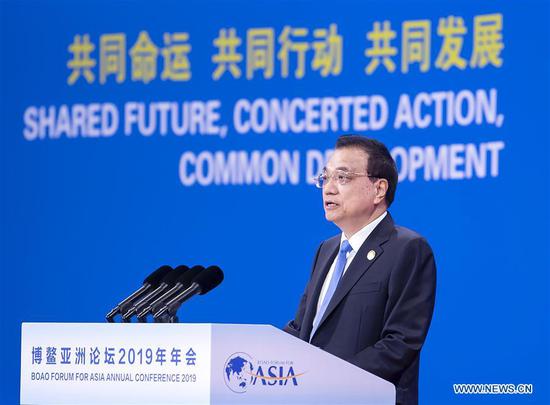
The Zhuhai section of the Hong Kong-Zhuhai-Macao Bridge in Guangdong Province. (Photo by Zhang Youqiong/For China Daily)
The "Outline Development Plan" for Guangdong-Hong Kong-Macao Greater Bay Area, released recently, aims to make the GBA a world class science and technology innovation center. But how can Guangdong province, and the Hong Kong and Macao special administrative regions, which have different political systems and, to a certain extent, cultures, collaborate seamlessly to create such an innovation center?
We believe that while the market will be a key driving force for the GBA's development, the government has to play the key role of coordinator and administrative guide. The market does play a vital role in economic development, but a visionary and determined government is needed to supplement the market and ensure coordinated development.
First, a government-coordinated plan will prevent the duplication of infrastructure facilities and cut-throat competition in the neighboring cities. And mutual leveraging and inter-city collaboration will create additional value for all the three regions given the nature of their respective economies.
The Tokyo Bay Area, too, faced a similar challenge, which the Japanese government tackled through a coordinated plan. The same is true for the San Francisco Bay Area. But in the latter's case, NGOs such as the Bay Area Council, rather than the United States federal government, helped coordinate cross-county infrastructure projects such as railways and ports with the support of the county governments.
Second, technology and innovation are vital areas the governments of Guangdong, Hong Kong and Macao should play an important role in. They should fund research in higher education, without which budding talents cannot be tapped. And since technological innovation projects carry great financial risks, the governments should shoulder a major part of those risks by acting as de facto insurers.
Helping entrepreneurs to get loans and providing them with fruitful advice are two areas in which the governments should play a critical role. By so doing, they can act as a catalyst for the GBA's economic growth.
Finance is the blood of any modern enterprise, more so for start-ups. But under the existing system, banks and financial institutions in the GBA may not provide loans to start-ups because start-ups are usually "light in assets".
Of course, start-ups can receive funding from venture capital companies. But venture capital companies usually look for very high return within a fixed period of time, which not all start-ups can guarantee. Also, some joint venture companies may demand equity in start-ups either in the form of convertible loans or direct equity investment, which many start-ups may not agree to for fear of losing control of their businesses.
To overcome these difficulties, the governments of Guangdong, Hong Kong and Macao should supplement their support models such as grants, incubation and industry parks and tax incentives by establishing a platform for financing where the government shoulders some of the risk and provides co-investment. They could begin by professionally assessing the development opportunities and market potential of the companies, which will not only help the start-ups to overcome their financial challenges, but also invest in emerging industries in the region.
The governments should also treat carefully when it comes to taking measures to bridge the old industries with the new ones and provide guidance and incentives for the two to work together. At the end of the day the governments and the market should not be regarded as two ideologically opposing forces for the GBA. In a recent article in The New York Times, Jamalle Bouie has written: "The institutions which provide health, education and welfare services are wholly exempt from the market. The right to participate in direct management of the work units operating in the market is derived from labor. The right to participate in direct management of the work units exempt wholly or partly from the market is derived proportionally from labor, ownership, and consumption of the provided services and utilities."
The only component "wholly exempt from the market" in the GBA's initial phase should be government planning, without which the GBA cannot develop into a science and technology innovative center.
Witman Hung is a member of the academic committee of China Silk Road iValley Research Institute; and Liang Haiming is the dean of Hainan University Belt and Road Research Institute and chairman of the China Silk Road iValley Research Institute. The views don't necessarily represent those of China Daily.


















































